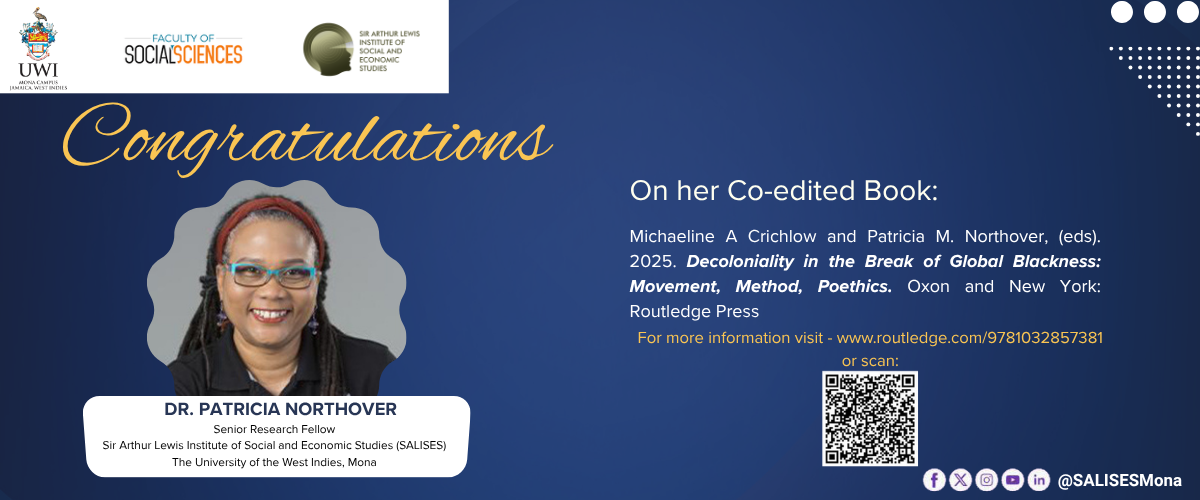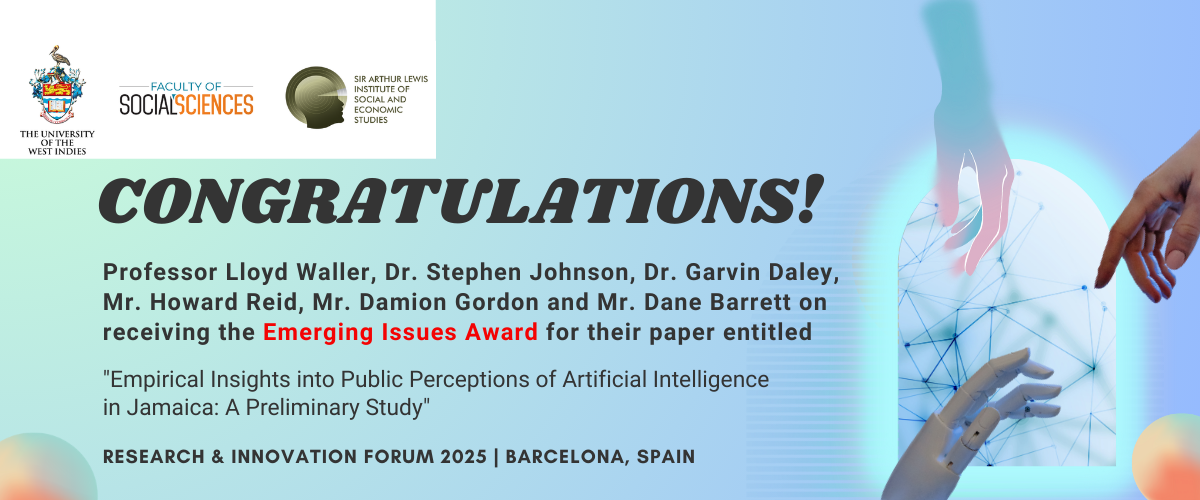Academic Year 2019 - 2020
Techniques of Applied Social Statistical Analysis
Specialized Research Methods -spss course
Social Investment in Children
PURPOSE AND OBJECTIVES OF THE COURSE
This course seeks to examine the critical social issues and social policy challenges in relation to children. The dimensions and causes of child vulnerability will be discussed within several theoretical frameworks. Current policies and programmes in developing countries to reduce vulnerability of children will be assessed. Cross-cutting issues in the course will be discussed using gender and stratification analyses.
COURSE OBJECTIVES
The course objectives are to:
Small States' Development: Challenges and Opportunities
SALI6206 Small States’ Development: Challenges and Opportunities will be taught in SALISES Seminar Room on Tuesdays 5-8pm. DrJones will be joining the class virtually on Feb 18,2020.
Monitoring and Evaluation
Understanding Contemporary Society and Development: Theories of the Present
This course will introduce students to the critical ferment and dissent that is present in theorizing and engaging with modern social change and development, drawing on literature that cuts across social spaces, geographies and history. It will provide students with an opportunity to develop and broaden their theoretical understanding of the ‘modern’ world, as well as, of the central problems debated within development studies; such as neo-liberalism and globalization, capitalism and inequality, social justice and freedom.
Research Methods in the Social Sciences
This course seeks to enhance students capacity to conduct research projects .
Objectives: The primary objective of this course is to expose students to research methodologies in order to enhance their capacity to conduct research projects. The course is also designed to ensure that students have an appreciation and understanding of the following: (i) the role of the philosophy of science in the research process; (ii) ethical issues in the conduct of social research; (iii) research design and preparation of research proposals .
The Global Political Economy
This course aims to provide students with an appreciation of the main structures of global governance—state and non-state—and their evolution over time, so that they can better understand the congealing environment within which states and other actors operate. It also 2 facilitates general insight into the regime-making of major global institutions by exposing students to the main intellectual perspectives and approaches that legitimize as well as underpin them.
Advanced Academic English Language Skills
This course seeks to assist students to strengthen their written communication skills.
Objectives: to identify the main uses of writing, employ the main features of writing, meet the expectations of readers, use writing and reading for inquiry learning and
thinking.









